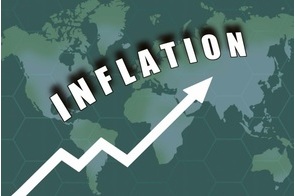Latest News
Crude oil trades below benchmark price for Nigeria’s 2025 budget

News Highlight
This pricing threshold is below the benchmark oil price of $75 per barrel set in the Nigerian 2025 budget proposal before the National Assembly.
As 2024 drew to a close, oil prices rose marginally on December 27th, as investors continued to assess the market outlook for 2025. West Texas Intermediate (WTI) topped $70 a barrel, while Brent Crude traded near $74. A gauge of 10-day volatility for WTI ebbed to the lowest since July, according to a report by Bloomberg.
This pricing threshold is below the benchmark oil price of $75 per barrel set in the Nigerian 2025 budget proposal before the National Assembly.
Volatile geopolitical conflicts in the Middle East are a key development that investors are tracking due to its potential impact on oil prices in 2025.
Late in December, Israel struck targets in Yemen that it said were controlled by Houthis, including power stations, ports, and the capital’s airport. The Yemeni rebels have been menacing shipping in the Red Sea, forcing oil tankers onto longer routes around southern Africa.
Also, there are widespread concerns the oil market may be oversupplied in 2025 as China’s demand slows and global production expands, although traders remain cautious about potentially tighter US sanctions against flows from Iran under President Donald Trump.
Related News
Latest Blogs
- What is most important for Nigeria in 2026
- Restoring asset declaration as a tool of public accountability
- Tackling antibiotic resistance through safer food systems
- Big government, little governance
- What will matter in Nigeria in 2026
Most Popular News
- NDIC pledges support towards financial system stability
- Artificial intelligence can help to reduce youth unemployment in Africa – ...
- FRC Chairman commends NDIC for prompt remittance of operating surplus
- Pan-African nonprofit appoints Newman as Advisory and Executive Boards Chair
- UN adopts new consumer product safety principles
- Dollar slumps as Fed independence comes under fire








